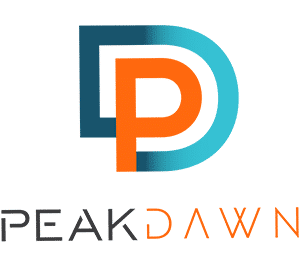Relationship Insights
Welcome to Part 2 — it’s nice to see you again.
In Part 1 we examined strategies for Self-Care, and the importance of maintaining personal energy so that you can give in life, and experience life with vitality. In this article, I am going to make the assumption that you’ve got Self-Care sorted out and don’t need any more help with that, OK? Remember, if you are tired, if you are frustrated, if you are in a bad mood, that’s something to own… it’s really easy to feel like “they did this to me”, or I am angry “because of X”, but often it can be our own reactivity or low-energy levels that are causing us to feel the certain way in the moment, especially in the context of relationships. This doesn’t mean others get off the hook for bad behaviour though…there are simply times where the other person is out of alignment too. For now, let’s simply acknowledge the importance of Self-Care and take that as a given.
As a reminder, there will be Part 3 soon on Pursuits, and Part 4 on Perspectives…keep an eye out, because these areas are part of the happiness equation too. This article is solely focusing on importance of relationships to your happiness.
We’ll look at relationships in the broad definition of the word, and include family, friends, professional, and intimate relationships. I want to start off this journey, however, by focusing on NEEDS so that we can understand a sense of hierarchy in this subject.
Needs Must….Before You Can Be Happy
In Maslow’s Hierarchy of Needs, it’s made clear that food, water, shelter, and physical safety must come first. We cannot talk about expanded levels of happiness unless these are taken care of. These needs are represented in the first two levels that you see below. I suppose that we can all agree that so long as we have something to eat, something to drink, and somewhere to stay tonight, then we have something to be grateful for?

Safety includes Personal Security, Financial Security, and Health and Well-Being. This is why you can feel so stressed at the prospect of losing your job, your house, not having enough money, or indeed getting chronically ill. What does this mean from a happiness perspective? If you ever find your physiology or safety threatened, then make it you TOP priority to fix the situation. If you don’t have enough money, find immediate ways to curb your spending, and get into the “hustle” of generating some cash! Sell it, make it, bake it….whatever you have to do. The same goes with your health. If you are overly stressed out, then it’s crucial to look after yourself as soon as possible. Stress causes inflammation, and inflammation causes disease. Once you snowball down this road, it’s hard sometimes to come out of it, which guess what….makes you more stressed. Can you see now how Self-Care links in to your Health and Well-Being Needs here at this level of the hierarchy? By taking care of yourself, you are literally enabling this need to be met.
Once you have these things sorted out, then you have the “space” to ascend up to the next level of Love & Belonging. It is in this sphere where we can begin discussing deeper levels of Relationship and what they mean for happiness.

Love & Belonging
Love & Belonging is about friendships, intimacy, and family. It also extends to clubs, teams, sports, organisations, and even online communities. In all of these spheres, we satisfy our social need to love and to be loved.
MYTH BUSTER— MONEY IS EVERYTHING
You do not need money to have happiness at this level of Love & Belonging. Yes it is true that a certain amount of money is required to buy a cup of coffee, or participate in a sport, but it’s important to remember that the people in your life who truly care about you, want to see you, and connect with you, not assess your wealth. If you do have friends that require you to have a certain level of wealth, then I boldly suggest you to reconsider the depth of that relationship.
Studies have shown that your life circumstances, which includes money, are only 10% responsible for your level of happiness. When you focus on controlling the 40% of intentional activity (such as focusing on Love & Belonging), you’ll find yourself getting a significantly better return on your happiness investment.

I WANT QUALITY TIME! PLEASE PAY ATTENTION TO ME!
Love & Belonging in our relationships comes with quality time. Quality time is about attention, presence and connection. Imagine a Father and Son taking a walk by the lake. They are holding hands, and enjoying the evening together, and having a conversation about life. There is a dynamic, a reverence and a mutual adoration. Nothing to do with dollars and cents. Quality time = Love & Belonging at the 1:1 level.

In friendship, let’s make this modern day for a second…..SWITCH OFF YOUR PHONE when with your friends. Show that you care! Ask questions, and make it clear that they are the only person that matters for the time that you are spending with them. True connection requires listening and authenticity.
Now, the Hierarchy of Needs does have higher levels of Self-Esteem and Self-Actualisation, but for the purposes of this article we’ll skip them. The most important message at this point is that once you have dealt with your basic needs in life, focus on relationships, focus on communities, and certainly don’t get caught up worrying about money being a prerequisite.

No Small Talk…
Psychologists in their study, Eavesdropping on Happiness, found that people who were focused on having substantive conversations tended to be happier, compared to people who partook in “small talk”. This resonates with me! There are only so many times I can hear “Not bad for a Monday”, or “Yeah, getting there….”…. where on earth is “there”?! It’s so vague, non-specific, and literally refuses to tell me anything that actually going on in the person’s life. For me, small talk can be such a turn off, and even drive me apart. Especially with people that you would have hoped to be closer with in life.
Conversely, meaningful conversations talk about love, life, hopes, and dreams. They have authenticity to them, and allow us to bond and relate. So, next time you find yourself about to kick into small talk, share something real about your life instead …. open up that door so that the other person has a chance to know you. Once they know something about you, they might discover commonality. At the very least you are giving them a chance to be able to care about your life too. I know this can be a little nerve racking for people, so here are some examples:
. “I am excited about my son’s birthday party coming up this weekend, but am unsure what to get him.”
. “I went for a run this morning, so am really well today thank you. How are you?”
. “I am feeling great thanks. I signed up to a 21 day fitness challenge, so am trying all sorts of new things for my diet….they have me on veggies only this week. Have you ever tried something like this?”
. “I just got into this new book about [fill in the blank], and it has really opened up my mind to [fill in the blank]. What do you think about this subject?”
P.S. meaningful conversations go for your work-mates too. Try to find some common ground and be real with one-another. It will add joy to your work-day.
The Gift of Forgiveness…
When we blame and shame people, we’re planting a poison ivy inside our hearts. These emotions grow roots, and yes impact the relationship, but more interestingly, stunt our own personal growth. Anger, bitterness, and disappointment are emotions related to the death of relationship, and they impact the well-being of both individuals. It’s impossible for heightened happiness between two people to authentically exist whilst matters are unresolved.
“But I don’t want them to hurt me again?”
If you are concerned that the person may hurt you again, then establish boundaries with them, and make it clear that you are moving on, but do not want these boundaries to be crossed in the future. This can take bravery in your communication, but it is necessary in order to restore your own personal power. By forgiving them, you are not condoning their past behaviour. In fact, when we choose to forgive, we are giving ourselves a gift. This gift is the lightening of this emotional burden for us, not the other party. Yes the relationship can be healed, and healthy dynamics restored, but forgiveness is actually a selfish act….in a good way.

There are, of course, relationships that you will choose not to continue in your life, and sometimes this is exactly the right choice. This is especially true in the areas of toxic relationships. Toxic people are usually narcissistic, controlling, hostile, blaming, judgemental, unreliable, and swing wildly between being a victim or domineering. The problem with these types of people is they often might not change or want to change. Worse than that, you might personally feel unsafe to leave. If that’s the case, call support lines, call the police, and find a discrete and safe strategy to get out. You can worry about the forgiving later on….
To sum up and bring it back to you, I overall invite you to to consider practising this art of forgiveness within yourself. You have the right to weed out the poison ivy of negative emotions from your own garden, and you deserve it, so give yourself the gift of forgiving people in your life.
Summing Up…

I find it only appropriate to credit the wonderful author, Bronnie Ware for her book The Top Five Regrets Of The Dying. The reason I bring this up in this conclusion is because two of the five regrets are related to Relationships.
- “I wish I had stayed in touch with my friends.”
- “ I wish I’d had the courage to express my feelings.”
In order to live a life free from regret, we need to invest in our relationships, and do so in a courageous and authentic way. Our friends make us laugh, help us out when we are in need, and travel with us through the different stages of life. Our family is our lifeblood, our lineage, and (hopefully) our bedrock, and our intimate relationships are our physicality, adoration, and romance. ALL of these things are worth cherishing, nurturing and investing in. They all have so much more depth than any material thing ever could.
Finally, we have relationships with people at work. Some will be closer, some more natural, and many will stay confined within organisations, but they do nonetheless bond us together. In Part 3, I will talk about how our work can link to our value structures, and how our work can give us purpose. The sharing of this purpose with colleagues also brings meaning to our lives too. May your relationships be meaningful and be about love, life, hopes, and dreams!
TO YOUR HAPPINESS and I hope to see you in Part 3!
Chris Hall
View our online course below.







